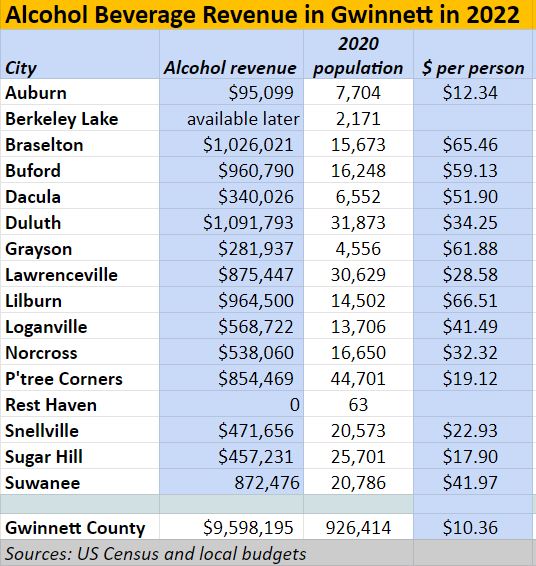By Elliott Brack
Editor and Publisher, GwinnettForum
AUG. 2 , 2022 | With school starting this week, Gwinnett County Public Schools are expecting 182,865 students to enroll, the most ever. The county schools employ 22,731 people, and is the largest employer in Gwinnett, and fourth largest in Metro Atlanta. The school district is now the 11th largest district in the entire country.
![]() Remember, too, that Buford operates its own city school system. It is expecting 5,750 students this year, and employs 657 people.
Remember, too, that Buford operates its own city school system. It is expecting 5,750 students this year, and employs 657 people.
Also in Gwinnett are 12 private high schools with at least 100 students. These private schools enroll 7,566 students.
At Georgia Gwinnett College, classes begin August 8.
Here’s hoping all these schools have a successful year!
Have you noticed that several Chick-fil-A outlets have been retrofitted recently? Some closed entirely for major renovations, while others remained open, but traffic was moving around orange cones during construction. This created quite a traffic snarl for drive-through orders, but the restaurant kept feeding.
The upshot is at least two of the local restaurants opened a second traffic lane for orders. We salute Chick-fil-A for engineering a way to cruise through its pick-up line quickly!
 Since beer and wine became legal in Gwinnett in 1961, Gwinnett cities and the county have seen an increasing revenue from this tax. Beer is taxed, for instance, at five cents a can. That first year, beer and wine sales brought in $85,000 for the county government.
Since beer and wine became legal in Gwinnett in 1961, Gwinnett cities and the county have seen an increasing revenue from this tax. Beer is taxed, for instance, at five cents a can. That first year, beer and wine sales brought in $85,000 for the county government.
After alcohol sales legalization, it’s become a bonanza for the tax coffers. Gwinnett County collected $9.5 million in alcohol revenue last year. And the cities did OK, too, collecting altogether $8.9 million.
Duluth got the most from the alcohol tax, $1,091 million, while Braselton was just behind at $1.026 million. (Braselton has a luxury hotel plus a winery within the city.) Lilburn, which had one of the first liquor stores, leads in alcohol revenue per person at $66.51, again followed by Braselton, at $65.46. (See table.)
Suppressing voting: as the Georgia Legislature has moved to make it more difficult to vote, some unexpected consequences have come out of it. For instance, it’s now illegal to offer a bottle of water to people standing in line to vote. Apparently, some legislator thought that a $1 bottle of water might buy someone’s vote. (See comment below.)
If it’s illegal to hand out water to voters standing in line, how come it’s not illegal for candidates to have grocery giveaways? A bag of groceries cost far more than a bottle of water. Yet the campaign of Herschel Walker has been up to this tactic in some parts of South Georgia. Yep, unintended consequence.
Buying votes: It was years ago. I was in a South Georgia town, and stopped by to see an advertiser, the local bank. Its president asked me what route I would take to return to my home in Jesup. “Doesn’t matter to me,” I said, and he asked if I would go back through Ludowici, just 11 miles north of Jesup. I asked why he wanted me to go that way.
The banker replied: “The bank down there ran out of $5 bills. You see, it’s election day in Ludowici.” (That may give some idea of the cost of buying a person’s vote that year.)
Then I asked: “Won’t it be dangerous for me to take that cash to Ludowici.”
The banker replied: “Naw. No one would ever suspect a newspaperman had that much cash!”
- Have a comment? Send to: elliott@brack.net









Follow Us